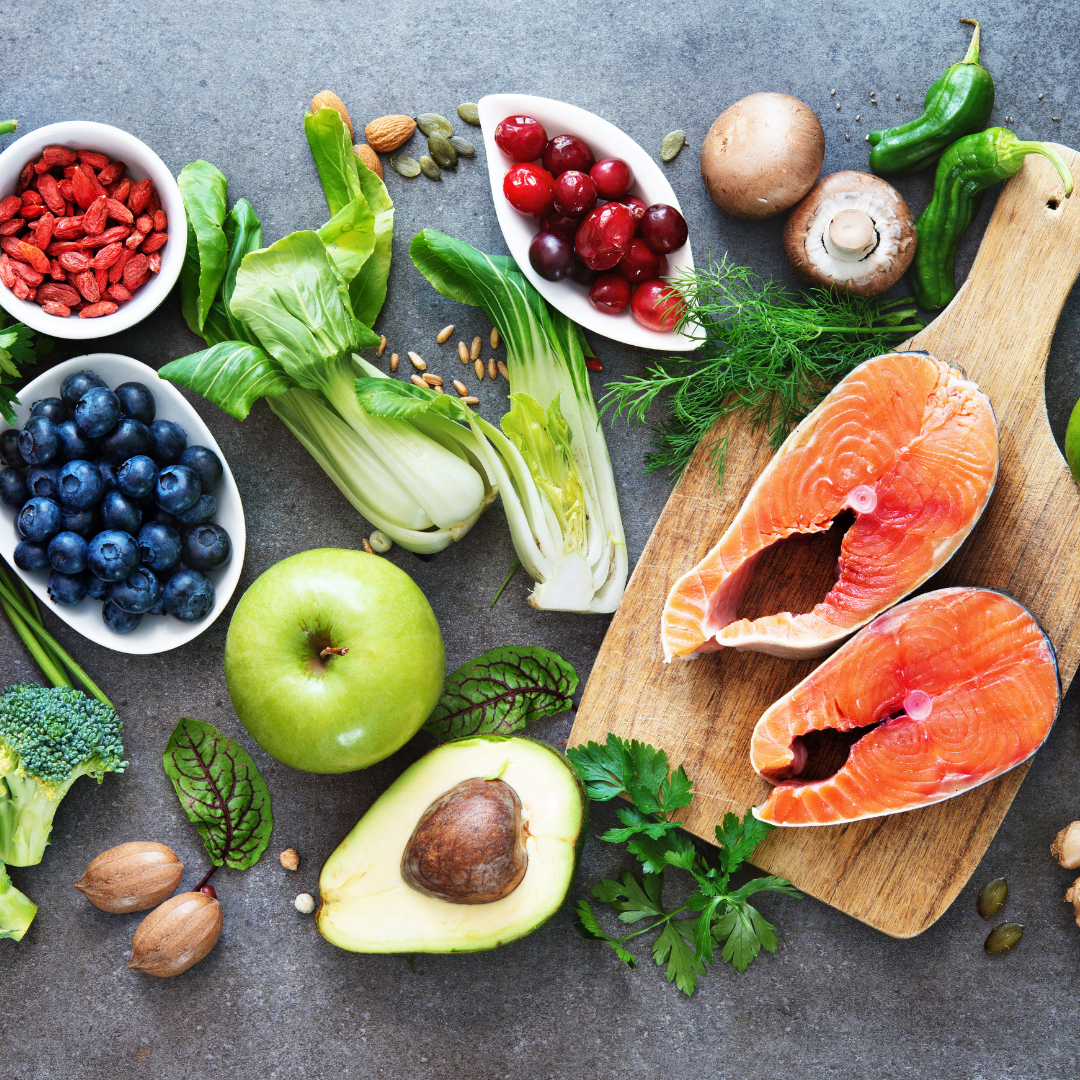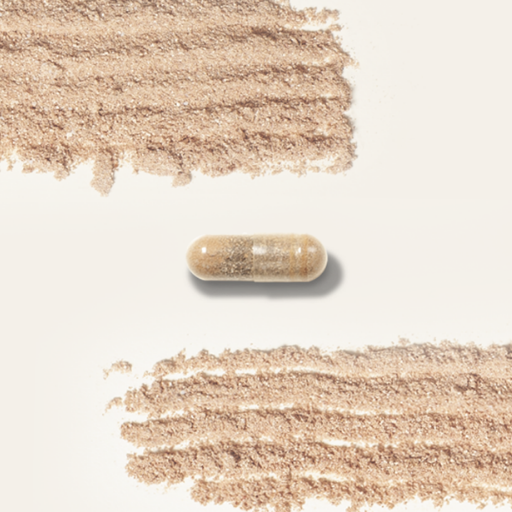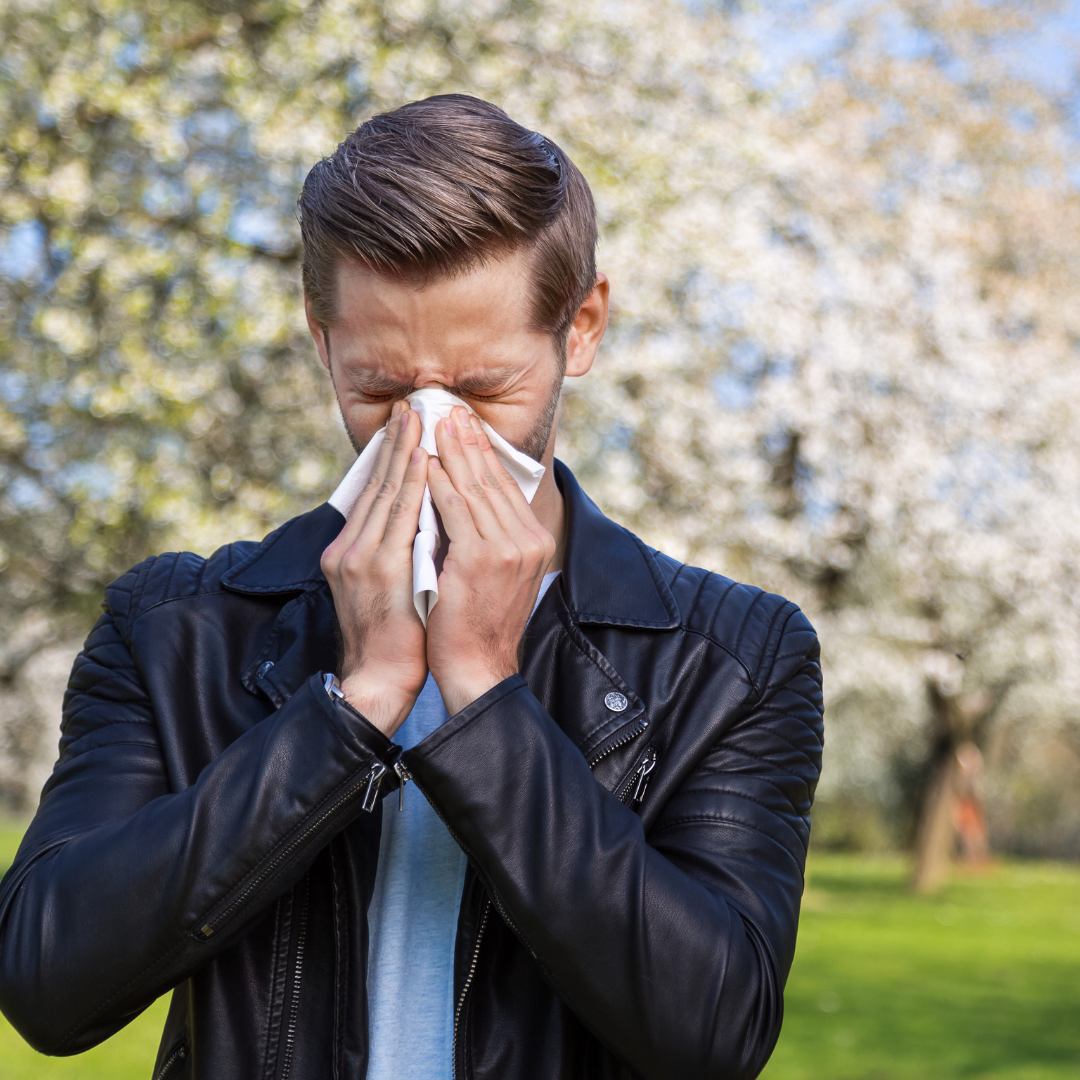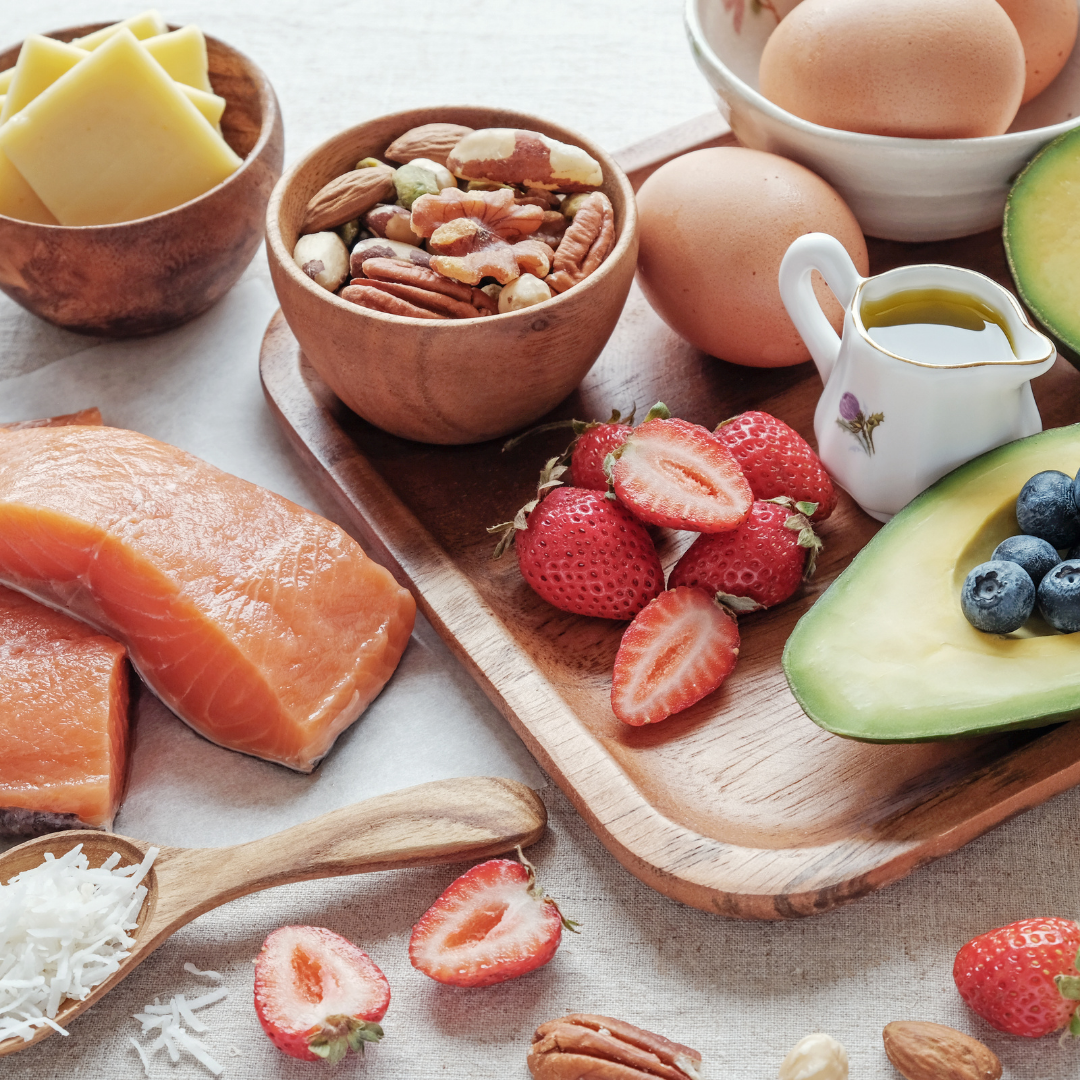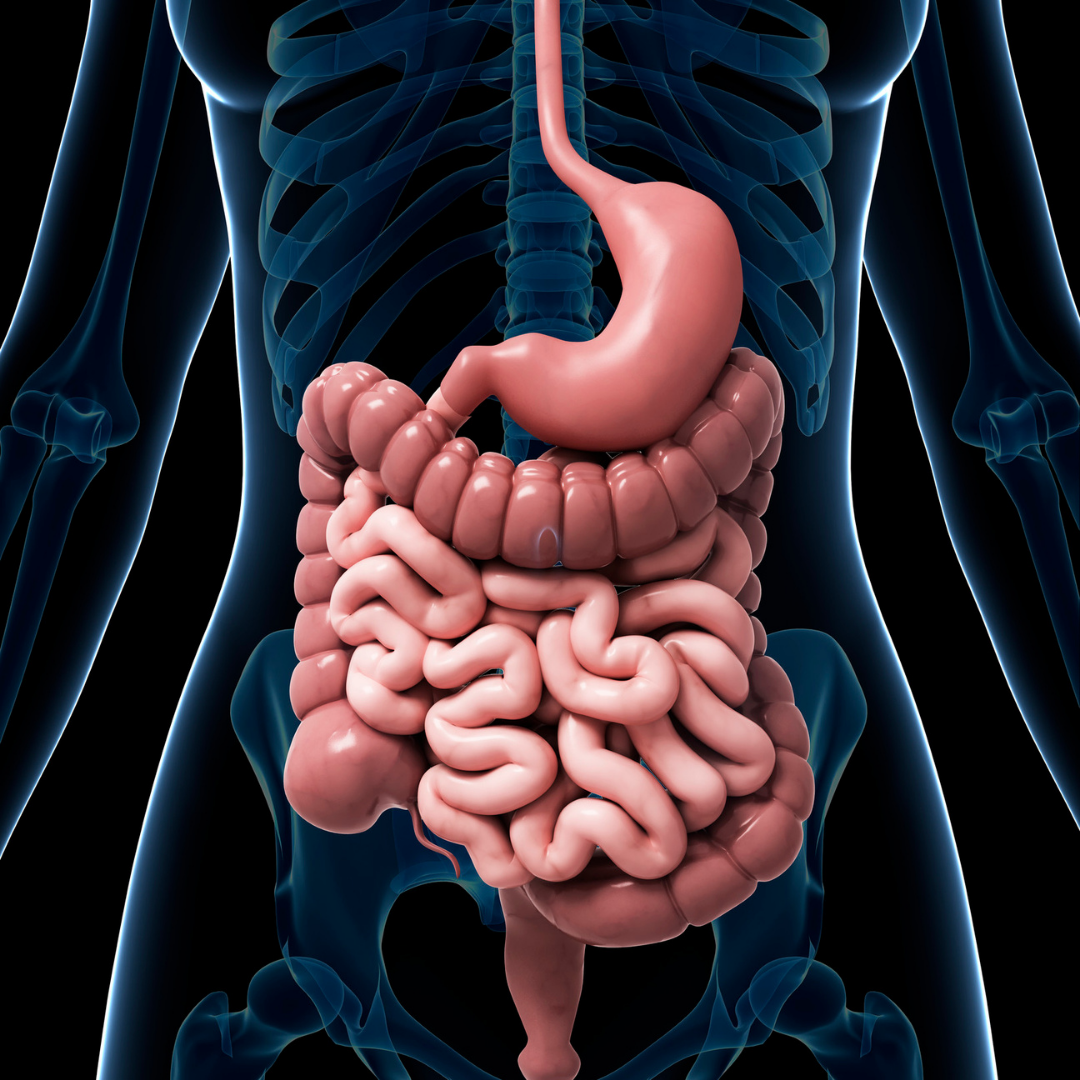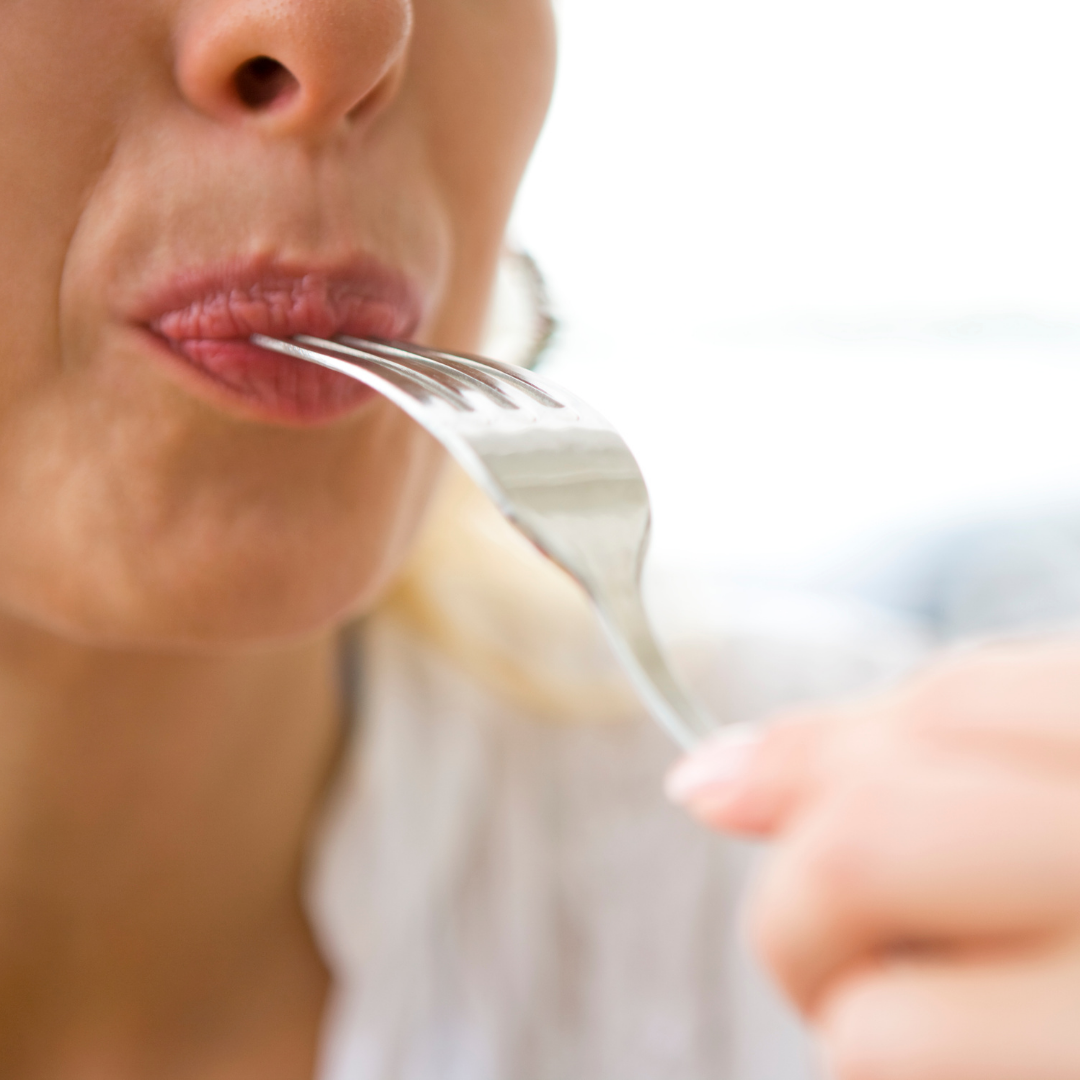Wellness Blog
The content on this blog is for general informational purposes only and is not a substitute for professional medical advice, diagnosis, or treatment. Always consult your healthcare provider before making changes to your health routine or taking new supplements.
Joint health: Benefits of adding fish oil to your daily vitamins
Keeping your joints healthy is important to be able to move comfortably without problems throughout life. However, 3 in 10 Australians are affected by chronic musculoskeletal conditions, or conditions that affect the bones, muscles and joints. These include arthritis and osteoporosis (1). Females are also 1.2 times more likely to have musculoskeletal conditions (1).Joints help us move, as they join two bones together, allowing for more range of motion. Joints also support your body by giving it structure and shape (2). Because of how much we use our joints every day, it is necessary, try to protect your joints from harm. For instance, factors such as an increase in temperature may hinder you from moving well, as it can cause pain to joints (3).Having the right diet and exercise habits are a great way to maintain joint health. Including personal vitamins that contain fish oil may also help ensure optimal joint function. Let's find out how.Fish oil for healthy jointsOmega-3 fatty acid, one of the components of fish oil, is used in different bodily processes. There are 3 types: eicosapentaenoic acid (EPA) and docosahexaenoic acid (DHA), and alpha-linolenic acid (ALA). EPA and DHA are naturally found in some seafood, while ALA are from plant-based foods (4). These fatty acids are needed for functions such as cell composition, brain development, and more (5). As the body cannot produce omega-3, these are sourced from the food that we eat. Omega-3 fatty acids can be found in different foods such as salmon, mackerel, and tuna, or seeds and nuts, such as chia seed, flaxseeds, and walnuts (6). Fish oil supplements also contain EPA and DHA and are extracted from fish tissue or liver.Inflammation is one of the factors that contribute to chronic diseases. It's not surprising that fish oil helps maintain joint health through inflammation relief as omega-3 fatty acids are known to support this area (7).A study reported that omega-3 fatty acids have prevented and minimised joint illnesses (8). Fish oil has been shown to better help patients with chronic joint pain compared to non-fish oil treatment (9, 10). Fish oil also provides inflammatory relief by decreasing the production of compounds that signal inflammation (11) in the body. Adding fish oil to your personal vitamin regimen alongside a fish oil-rich diet can benefit your general health and wellbeing.Create your own vitamin packs for joint healthDon't let unhealthy joints stop you from doing the things that you love. Keep them healthy with the right amount of exercise and nutrition. With Vitable, you can easily assemble the supplements to support joint health through a monthly vitamin subscription service. Choose from a wide variety of premium supplements not only for your joints but for other areas of health. We also provide vitamin delivery in Australia, which means you'll have your daily vitamins delivered on time, at your doorstep!Find out more about other areas that the above supplements can help you with:Vitamin C | Fish oil | Cranberry | Curcumin*Always read the label. Follow the directions for use. If symptoms persist, talk to your health professional. Vitamin and/or mineral supplements should not replace a balanced diet.References: eased Aug 25. 2020 on https://www.aihw.gov.au/reports/australias-health/bone-and-joint-health. Accessed Janu. 11, 2022. “Joints”. Better Health Channel. Published Mar. 21, 2012 on https://www.betterhealth.vic.gov.au/health/conditionsandtreatments/joints. Accessed on Nov. 19, 2021 Jamison, R., Anderson, K., and Slater, M. “Weather changes and pain: perceived influence of local climate on pain complaint in chronic pain patients”. Pain. Published May 1995 on https://journals.lww.com/pain/Abstract/1995/05000/Weather_changes_and_pain__perceived_influence_of.18.aspx. Accessed on Nov. 19, 2021 “Fish Oil”. Mayo Clinic. Published Dec. 8, 2020 on https://www.mayoclinic.org/drugs-supplements-fish-oil/art-20364810. Accessed on Nov. 19, 2021 “Omega-3 Fatty Acids”. Office of Dietary Supplements: Dietary Supplement Fact Sheets. Published Aug. 4, 2021 on https://ods.od.nih.gov/factsheets/Omega3FattyAcids-HealthProfessional/. Accessed on Nov. 19, 2021 Higdon, J., Drake, V., Angelo, G., Delage, B., and Jump, D. “Essential Fatty Acids”. Oregon State University: Linus Pauling Institute. Published Jun. 2019 on https://lpi.oregonstate.edu/mic/other-nutrients/essential-fatty-acids. Accessed on Nov. 19, 2021 Calder P. "Omega-3 fatty acids and inflammatory processes". Nutrients. Published Mar. 18, 2010 on https://doi.org/10.3390/nu2030355. Accessed on Nov. 19, 2021 University of Bristol. "Omega-3 fatty acids shown to prevent or slow progression of osteoarthritis". ScienceDaily. Published Oct. 18, 2011 on www.sciencedaily.com/releases/2011/10/111017111600.htm. Accessed on Nov. 19, 2021 Kuszewski, J., Wong, R., and Howe, P. "Fish oil supplementation reduces osteoarthritis-specific pain in older adults with overweight/obesity". Rheumatology advances in practice. Published Jul. 23, 20204 on https://doi.org/10.1093/rap/rkaa036. Accessed on Nov. 19, 2021 Rajaei, E., Mowla, K., Ghorbani, A., Bahadoram, S., Bahadoram, M., and Dargahi-Malamir, M. "The Effect of Omega-3 Fatty Acids in Patients With Active Rheumatoid Arthritis Receiving DMARDs Therapy: Double-Blind Randomized Controlled Trial". Global journal of health Science. Published Nov. 3, 2015 on https://doi.org/10.5539/gjhs.v8n7p18. Accessed on Nov. 19, 2021 Calder P. "N-3 polyunsaturated fatty acids and inflammation: from molecular biology to the clinic". Lipids. Published Apr. 2003 on https://doi.org/10.1007/s11745-003-1068-y. Accessed on Nov. 19, 2021
Learn moreThe top vitamins and minerals for a healthy liver
The liver serves so many important functions in the body. It's responsible for clearing out toxins, getting rid of old blood cells, and producing bile for our digestive system. It's a fundamental organ that can dramatically impact our overall health, so it's only natural that we want our liver to remain in tip-top shape throughout our lives. In order to protect the liver, there are some basic steps to take like getting quality rest, and exercising daily. It's also crucial to pay attention to the nutrients we put into our bodies. You can also pair supplementation with a well-balanced diet to support your liver health. Here are some options you can consider as part of that plan:Daily vitamins for liver healthMagnesiumThis essential mineral is an important factor in so many of our bodily functions. Magnesium supplements contribute to energy production, muscle support, nervous system health, and cardiovascular health. What's more, research has shown then people with low levels of magnesium are prone to liver dysfunction (2).B complexB complex actually refers to the whole host of B-vitamins that our body absorbs for multiple processes and bodily functions. B-vitamins are crucial for our nervous system and immune system health. B complex also helps out in energy production and stress management. This daily vitamin supports liver health (3). Consult with your doctor first before taking B complex vitamins.Vitamin CAlso known as ascorbic acid, vitamin C is a water-soluble vitamin that helps in various body processes. Some of the benefits of vitamin C include antioxidant formation, energy support, and collagen formation. Additionally, this daily vitamin also greatly supports our immune system by helping in the production of white blood cells. White blood cells are responsible for defending our bodies against foreign invaders that seek to do it harm.Vitamin C supplementation also promotes improved liver health, having a positive modulatory effect on the function of the liver (6). An increased intake in vitamin C can help support gut-liver functions, as well as support optimal day-to-day liver function (4, 5).CurcuminCommonly found in turmeric, curcumin is known for its anti-inflammatory properties. Additionally, curcumin is also beneficial in improving joint health and lowering oxidative stress. Research suggests that the intake of curcumin can protect against liver problems (7). Since your liver is responsible for flushing out toxins, it receives the most risk of damage by these toxins.This list is by no means exhaustive. There are other vitamins and minerals that can support liver health. As always, make sure to consult your doctor before opting for any supplements or medication.Vitable offers the personalised vitamins in Australia that can cater to liver health when paired alongside a healthy and well-balanced diet. We have vitamin subscription and vitamin delivery services to ensure that you get your daily dose of healthy micronutrients. Sign up now and build your daily vitamin packs that fit for your daily needs.Find out more about other areas that the above supplements can help you with:Magnesium | B complex | Vitamin C | Curcumin *Always read the label. Follow the directions for use. If symptoms persist, talk to your health professional. Vitamin and/or mineral supplements should not replace a balanced diet.References: Liver (2021), Accessed on 11/21/2021 on https://my.clevelandclinic.org/health/articles/21481-liver Magnesium and Liver Disease (2019), Accessed on 11/21/2021 on https://www.ncbi.nlm.nih.gov/pmc/articles/PMC6861788/ B-Complex Vitamins in Liver Disease of the Alcoholic (1965), Accessed on 11/21/2021 on https://pubmed.ncbi.nlm.nih.gov/14278632/ The Relationship between Vitamin C Status, Gut-Liver Axis, and Metabolic Syndrome https://www.sciencedirect.com/science/article/pii/S2213231718309480 Vitamin C and Vitamin E in the Prevention of Non-alcoholic Fatty Liver Disease in Choline Deficient Diet Fed Rats (2003), Accessed on 11/21/2021 on https://www.ncbi.nlm.nih.gov/pmc/articles/PMC270010/ Effects of Oral Vitamin C Supplementation on Liver Health and Associated Parameters in Patients With Non-Alcoholic Fatty Liver Disease: A Randomized Clinical Trial (Sept 2021), Accessed on 01/11/2022 on https://www.frontiersin.org/articles/10.3389/fnut.2021.745609/full Buonomo, A., et. al., The role of curcumin in liver diseases. Archives of Medical Science (June 2019). Accessed on 12/2/2021 on https://www.archivesofmedicalscience.com/The-role-of-curcumin-in-liver-diseases,78816,0,2.html
Learn moreThinking of taking iron for skin health? Here's why you should consider it
The skin is our largest organ in the body and can be an indicator of our overall health. Among the many nutrients that support skin health, iron is one that's often overlooked. Apart from skin health, iron is essential in energy production, immunity, and brain function. Let's get to know the benefits that iron can have on the maintenance of skin health.What is iron?Iron is one of the essential minerals that our bodies require to function smoothly (1). Since our bodies cannot produce iron on their own, we have to rely on our diet and other sources for iron, such as supplements.Iron for skin: Why is it important?We usually associate iron with energy, red blood cell production, immune system health, and brain function. But besides these important functions, iron also plays a key role in improving our skin health.Research shows that certain iron-containing proteins play a key part in the metabolism of collagen (2), a protein abundantly found in our bodies (3). Collagen provides structural integrity to our bones, muscles, tendons and skin (3). It also helps make our skin look young and healthy. As we advance in years, our skin tends to sag and wrinkle because collagen decreases with age. In addition to healthier looking skin, collagen also helps our wounds heal quickly. It achieves this by attracting new skin cells to the site of the wound, so that new tissue can grow (3).What are the symptoms of low iron levels?Low iron levels, also known as iron deficiency, can manifest in various ways, impacting your overall health and skin. Common symptoms include pale or dull skin, dryness, and a loss of elasticity due to decreased oxygen supply to skin cells. Other signs include fatigue, brittle nails, hair loss, shortness of breath, and frequent infections. If left untreated, iron deficiency can lead to anaemia, which may exacerbate these issues. Recognising these symptoms early can help you address the deficiency and restore skin health and vitality.What are good sources of iron for skin?There are many food sources you can consider when it comes to iron. Here are just some of your choices if you want to consume iron for skin health (4):Meat and eggsMeats, such as beef, lamb, ham, turkey, chicken, veal, pork, dried beef, and liver are some of the best sources of iron (4).SeafoodPrawn, clams, scallops, oysters, tuna, sardines, haddock, and mackerel contain a good amount of iron as well as other beneficial nutrients (4).VegetablesVegetables with good amounts of iron are spinach, sweet potatoes, peas, broccoli, green beans, beet greens, dandelion greens, collards, kale, and chard (4).FruitsLook for strawberries, melons, raisins, dates, figs, prunes, dried apricots, and dried peaches if you're looking to add some iron for skin health (4).Breads and cerealsLook for whole wheat bread, enriched pasta, bran cereals, corn meal, rye bread, oats (steal cuts, organic, or rolled), enriched rice, and whole grains (quinoa, spelt, millet, and brown rice) for your iron fix.Beans and other foodsTofu, beans, tomato products, dried peas, dried beans, and lentils can help you meet your daily iron requirement.Iron supplementsSometimes dietary restrictions can prevent us from getting our daily iron intake. In these cases, iron supplements can be an effective way to meet your daily iron requirements. However, not all iron supplements are created equal.Our iron supplement is made with the premium ingredient Ferrochel® (Ferrous Bisglycinate Chelate), combined with Vitamin C for optimal absorption. Compared to other forms of iron, Ferrochel® is more bioavailable, meaning it's better absorbed by the body, and it's known to cause less gastric upset. Each dose provides 18mg of elemental iron, which is a recommended amount for many individuals. However, we always advise consulting with your doctor to ensure the dose is suitable for your specific needs and health profile.Besides helping our bodies with energy production, immunity, and brain function—it's also vital for maintaining healthy, glowing skin. With this in mind, it's essential to ensure you're meeting your daily iron needs through diet and/or supplementation.Do you have your doctor's approval for iron supplementation? It may be time to consider Vitable vitamins. Our vitamin subscription in Australia provides custom vitamin packs to support your health goals and needs. With our vitamin delivery service, you'll be sure to receive your daily vitamins on time, right at your doorstep! Find out more about other supplements that can support energy levels in the body:Iron | Ashwagandha | Magnesium | B complex | Acetyl L-carnitine | Vitamin C | Vitamin B12*Always read the label. Follow the directions for use. If symptoms persist, talk to your health professional. Vitamin and/or mineral supplements should not replace a balanced diet.References: Iron (n.d.) Researched December 9, 2021 from https://research.get.vitable.com.au/iron The Role of Iron in the Skin and Cutaneous Wound Healing (2014) Researched December 9, 2021 from https://www.ncbi.nlm.nih.gov/pmc/articles/PMC4091310/ What is Collagen and Why do People Use it? (2017) Researched December 9, 2021 from https://www.medicalnewstoday.com/articles/262881 Iron Rich Foods (n.d.) Researched December 9, 2021 from https://www.redcrossblood.org/donate-blood/blood-donation-process/before-during-after/iron-blood-donation/iron-rich-foods.html
Learn moreHair loss and thinning: here's how to manage it, naturally!
What to do for thinning hairA common problem that occurs in people as they age is hair loss and hair thinning. While it's normal and natural to lose hair, it can be uncomfortable and linked to several conditions. Hormonal imbalance, procedures related to cancer management such as chemotherapy, stress, pregnancy and environmental factors can all impact your hair strength and health.Here are some other common causes of thinning hair or hair loss.Causes of thinning hairNutritional deficiencyVitamin deficiency may lead to hair thinning or loss, in particular, deficiencies in niacin, zinc, selenium and vitamin D have been linked to hair loss (5). Taking in more of these nutrients by eating a healthy and well-balanced diet, with a variety of fruits, vegetables and proteins may help address deficiency.HairstyleBelieve it or not, certain types of hairstyle arrangements or treatments like hair straightening may pull on the hair roots, causing damage (6). Tight ponytails, braids, or corn rows may also result in hair loss. Some people also use caustic chemicals when styling their hair, which may lead to thinning and hair loss. If you find that you're losing hair rapidly after styling or treating your hair, it can help to avoid any treatments for a few weeks to allow your hair to recover.Hereditary hair lossHereditary hair loss is one of the most common causes of hair loss. Commonly called male or female pattern hair loss, androgenic alopecia can manifest in either sex (2). Age is the major factor in this condition. While hereditary causes of hair loss cannot be prevented, it helps to speak to your doctor for options on how to address it. In severe cases you might like to look into hair transplant surgery, hair treatment, or using a wig (6).Supplements for stronger hairVarious nutrients can help you keep your hair strong. While these nutrients are best taken in through a healthy diet, you can opt for supplementation to support hair health. Here are some supplements that you can consider pairing alongside a well-balanced diet:CollagenCollagen is a natural protein in the body (3). It's fibre-like structure is used to make connective tissues that are strong and resilient, and able to withstand stretching. When your body makes collagen, it combines amino acids, which are nutrients you get from eating protein-rich foods.Vitable's Collagen supplements are derived from sustainably sourced fish. This dairy-free Collagen Creamer is paired with organic coconut milk and natural vanilla with each serving, providing the body and our hair with a dose of collagen, healthy fats, protein and fibre. Our hydrolysed collagen is also easily absorbed by the body and stable in hot temperatures.BiotinThe water soluble vitamin also known as vitamin B7, is an essential cofactor to enzymes in the metabolism of fatty acids, glucose and amino acids. It plays a key role in gene expression and cell signaling (4). This allows for the proteins that promote hair growth to proliferate in your body.Vitable's Biotin Tablet supplements support hair strength, thickness and overall health. Capsuled in Australia, and observing TGA standards on quality and safety, this smart dose delivers only the suitable daily amount as opposed to other megadoses. On top of that, this special tablet is vegan, non-GMO and free of added gluten and lactose.CranberryDon't forget to add cranberry into your daily vitamin subscription to support hair health. Vitable's Cranberry Formula contains a healthy dose of vitamin C and Silica. Vitamin C is vital in promoting healthy collagen fibre synthesis. It plays a role in the chemical process of creating healthy collagen structures, as well as in the absorption of iron that aids in preventing hair loss. Silica, on the other hand, delivers essential nutrients through our bodies to strengthen hair fibres and complete the healthy hair look.There is no need to get your priorities all tangled up to achieve a healthy head of hair. Simply practice a healthy lifestyle and well-balanced diet and further support them with a daily vitamin subscription. Vitable vitamins allows you to customise your personal vitamin pack and we'll send it right to your doorstep via our vitamin delivery service.Find out more about other areas that the above supplements can help you with:Collagen | Biotin | Cranberry*Always read the label. Follow the directions for use. If symptoms persist, talk to your health professional. Vitamin and/or mineral supplements should not replace a balanced diet.References: American Academy of Dermatology Association. Hair Loss: Who Gets and Causes. Published on https://www.aad.org/public/diseases/hair-loss/causes/18-causes. Accessed Nov 22, 2021. Cleveland Clinic. Hair Loss in Women. Published on https://my.clevelandclinic.org/health/diseases/16921-hair-loss-in-women. Accessed Nov 22, 2021. Cedars-Sinai Staff. Collage for Your Skin: Healthy or Hype? Published Jan 15, 2021 on https://www.cedars-sinai.org/blog/collagen-supplements.html. Accessed Nov 22, 2021. Harvard T.H. Chan. Biotin - Vitamin B7. Published on https://www.hsph.harvard.edu/nutritionsource/biotin-vitamin-b7/. Accessed Nov 22, 2021. Guo, E., Katta, R., "Diet and hair loss: effects of nutrient deficiency and supplement use". Dermatology Practical & Conceptual. Published Jan 31 2017 on https://www.ncbi.nlm.nih.gov/pmc/articles/PMC5315033/. Accessed November 29, 2021. Cleveland Clinic. "Hair Loss in Women". Cleveland Clinic. Reviewed Feb 10 2021. https://my.clevelandclinic.org/health/diseases/16921-hair-loss-in-women. Accessed November 29, 2021.
Learn moreThe link between allergies and our immune system
We don't usually make a connection between the immune system and allergies. Often, we link our immune system with things like the flu, fevers, or generally, other illnesses. But the truth is, our immune system shares a very close relationship with allergies. Let's understand more about how the immune system is interconnected with allergies, as well as some basic tips on how to avoid common allergies.The relationship between our immune system and allergiesOur immune system is a complex network of cells, chemicals, tissues, and organs that is responsible for fending off any harmful pathogens that try to invade and harm our bodies (1). It is an important line of defense that keeps our bodies safe from illness. Allergies are our bodies' reaction when it comes into contact with a foreign substance that it considers harmful to the body (2). Allergies are usually characterised by inflammation and itching. In more severe cases, some types of allergies can prove to be fatal.Now, let's understand the relationship between our immune system and allergies. Allergies are caused by an overreaction of our immune system. When typically harmless substances manage to enter our bodies either through inhalation, consumption, or contact (3), our immune system might misjudge and consider these foreign objects as threats (4). When this happens, the body creates antibodies to attack these threats. As the immune system's antibodies attack these substances, the affected areas or parts become inflamed. This is what we call an allergic reaction. Allergic reactions tend to occur because of an overactive immune system (4). Overactive immune systems produce too many antibodies than necessary. This can prove to be an issue since it can lead to excessive inflammation in our airways or digestive tracts. Now that we know about the link between the immune system and allergies, let's talk about how to manage allergies.How to manage our immune system and allergiesHere are some basic steps that you can take to manage your allergies.Test for allergiesThere are many types of allergies such as ones triggered by dust, food, drugs, latex, and mould to name a few (5). Fortunately, there are tests that you can take so you can better identify what substances your immune system can possibly overreact to. Consult your doctor and get tested so you can come up with a plan on how to live a lifestyle that avoids your triggers.Avoid allergy triggersThe best course of action to avoid allergies is to limit your exposure to triggers altogether. Once you've identified possible allergens with your healthcare professional, you would be able to actively avoid making contact with them. Prevention is always better than cure.SupplementsYou can also consider taking supplements as a way to improve your immune system. As always, consult with your doctor first before taking anything.Here are some vitamins and minerals that can support immune system function when paired alongside a nutrient-rich diet:ZincZinc supports the immune system in fighting off pathogens (6).IronIron supports the immune system by playing a role in producing immune system cells (7).*Iron should only be taken if prescribed by your doctor.AstaxanthinAstaxanthin supports healthy immune system function by modulating immune response, and preventing certain kinds of inflammation (8).AshwagandhaAshwagandha is thought to be an immune system modulator, and has anti-inflammatory and anti-stress effects (9).ProbioticsCertain probiotic strains help modulate the immune system, contributing to quicker immune response (10).Vitamin B complexVitamin B deficiency may affect immune system processes (11).Vitamin CVitamin C supports the immune system by playing a role in the production and function of immune system cells (12).Vitamin DVitamin D deficiency is connected to higher susceptibility to infection (13).Vitamin B12Vitamin B12 helps promote healthy immune system response. A lack of this vitamin may inhibit the activity of immune cells (14).Fish oilOmega-3 fatty acids come from fish oil. These fatty acids help support healthy immune system function (15).The immune system and allergies are closely related. If you want to manage your allergies, ensure you take care of your immune system. Consult a doctor, avoid triggers, and consider vitamins ad supplements to manage deficiencies. Keeping your allergies at bay doesn't have to be a chore! Vitable vitamins can help you support immunity. Vitable's daily vitamin subscription ensures on-time vitamin delivery of your customised vitamin plan. Get started on your personalised vitamins in Australia today!Find out more about other areas that the above supplements can help you with:Zinc | Iron | Astaxanthin | Ashwagandha | Probiotics | B complex | Vitamin B12 | Vitamin C | Vitamin D | Fish oil*Always read the label. Follow the directions for use. If symptoms persist, talk to your health professional. Vitamin and/or mineral supplements should not replace a balanced diet.References: Immune System (n.d.), Accessed 11/21/2021 on https://www.healthdirect.gov.au/immune-system Allergies (08/04/2021), Accessed 11/21/2021 on https://www.mayoclinic.org/diseases-conditions/allergies/symptoms-causes/syc-20351497 Allergies and the Immune System (n.d.), Accessed 11/21/2021 on https://www.hopkinsmedicine.org/health/conditions-and-diseases/allergies-and-the-immune-system Immune System Disorders - Fast Facts (2019), Accessed 11/21/2021 on https://www.allergy.org.au/patients/immune-system/immune-system-disorders-fast-facts Prevention (11/22/2018), Accessed on 11/21/2021 on https://www.nhs.uk/conditions/allergies/prevention/ Zinc (03/22/2021), Accessed on 11/30/2021 on https://ods.od.nih.gov/factsheets/Zinc-Consumer/ Iron (n.d.)., Accessed on 11/30/2021 on https://research.get.vitable.com.au/iron Astaxanthin decreased oxidative stress and inflammation and enhanced immune response in humans (03/05/2010), Accessed on 11/30/2021 on https://www.ncbi.nlm.nih.gov/pmc/articles/PMC2845588/ Ashwagandha: Effects on Stress, Inflammation and Immune Cell Activation (last updated 03/18/2010), Accessed on 11/30/2021 on https://clinicaltrials.gov/ct2/show/NCT00817752 Probiotics (n.d.)., Accessed on 11/30/2021 on https://research.get.vitable.com.au/probiotics. B Complex (n.d.), Accessed on 11/30/2021 on https://research.get.vitable.com.au/b-complex Vitamin C Plus (n.d.), Accessed on 11/30/2021 on https://research.get.vitable.com.au/vitamin-c-plus Vitamin D and the Immune System (08/2011), Accessed on 11/30/2021 on https://www.ncbi.nlm.nih.gov/pmc/articles/PMC3166406/ Vitamin B12, Folic Acid, and the Immune System (07/31/2019), Accessed 11/30/2021 on https://link.springer.com/chapter/10.1007/978-3-030-16073-9_6 Effects of Omega-3 Fatty Acids on Immune Cells (10/11/2019), Accessed on 11/30/2021 on https://www.ncbi.nlm.nih.gov/pmc/articles/PMC6834330/ Biotin (n.d.), Accessed on 11/30/2021 on https://research.get.vitable.com.au/biotin
Learn moreSupporting your heart health with magnesium
The heart is responsible for keeping blood flowing in our bodies. It controls the speed and rhythm of our heart rates, and it also maintains our blood pressure (1). Given its responsibility for pivotal functions in the body, it makes sense that we should give heart health extra attention.Exercising moderately for at least 150 minutes a week, limiting our sodium intake, quitting smoking, and avoiding secondhand smoke, and maintaining a healthy well-balanced diet with protein, fruits, vegetables, and grains are some of the main ways we can keep our heart healthy (1, 2). Many of us know that doing all of these things can be challenging as we might not always have the time to fit them into our daily lives. Given this, we can always look toward supplementation alongside a healthy and well-balanced diet to ensure we hit our daily nutrient requirement for heart and overall health.Benefits of magnesium for heart healthIf you're looking to put together personalised vitamin daily packs to support heart health, you'd want to consider adding magnesium to the mix. Let's find out how magnesium plays a key role in supporting heart health.Helps keep a healthy heart rhythmJust like other electrolytes, magnesium is known to be involved in the control of central nervous system processes. It is required by the heart to keep a normal rhythm as it supports the bodies nerve signals and muscle contractions (3).Supports cardiovascular healthMagnesium supports cardiovascular health. It is used by the body as a key cardiovascular regulator, and in oxidative and inflammatory processes (4). An adequate intake of magnesium has also been found to have a protective effect against the development of cardiovascular disease (3).Keeps your blood pressure stableAn excessive amount of stress can lead to increased levels of blood pressure. Magnesium has a stabilising effect on blood pressure (6). Among its many functions, magnesium also helps in keeping your blood sugar and blood pressure at the right levels (5).Magnesium keeps you movingWe mentioned earlier that exercising is a great way to keep your heart health in check. So if you're looking to be more active, you may want to add magnesium to your vitamin daily packs. This is because magnesium assists in energy production as it helps transform carbohydrates and fats into energy, and it also helps with muscle contraction (2). Supporting your heart health with the right measures is probably one of the most crucial steps in maintaining overall health and well-being. Paired alongside a healthy and well-balanced diet, daily vitamin packs geared towards heart health can help you achieve your health goals! Whether you're looking to add magnesium to your daily vitamin packs or you're looking to get started in your very own daily vitamin packs, you can avail of Vitable Australia's subscription vitamin service that comes with delivery.Find out more about other areas that the above supplements can help you with:Astaxanthin | Magnesium | Acetyl L carnitine | Fish oil | Vegan omega*Always read the label. Follow the directions for use. If symptoms persist, talk to your health professional. Vitamin and/or mineral supplements should not replace a balanced diet.References: Cleveland Clinic. “Heart”. Cleveland Clinic. Published (n.d.) on https://my.clevelandclinic.org/health/body/21704-heart#:~:text=The%20heart%20is%20a%20fist,system%20direct%20your%20heart's%20function. Accessed November 22, 2021. Heart Foundation. “Keeping your heart healthy”. Heart Foundation. Published (n.d.) on https://www.heartfoundation.org.au/Heart-health-education/Keeping-your-heart-healthy. Accessed November 22, 2021. Vitable. “Magnesium”. Vitable. Published (n.d.) on https://research.get.vitable.com.au/magnesium. Accessed November 22, 2021. Paolo Severino, Lucrezia Netti, et al. “Prevention of Cardiovascular Disease: Screening for Magnesium Deficiency”. Hindwadi. Published May 2, 2019 on https://www.hindawi.com/journals/crp/2019/4874921/. Accessed November 22, 2021. Health Direct. “Magnesium and your health”. Health Direct. Published (n.d.) on https://www.healthdirect.gov.au/magnesium. Accessed November 22, 2021. Harvard Health Publishing. “Key Minerals to Help Control Blood Pressure. Harvard Medical School. Published May 3, 2019 on https://www.health.harvard.edu/heart-health/key-minerals-to-help-control-blood-pressure. Accessed January 5, 2022.
Learn moreSupporting blood sugar management with multivitamin packs
Eating well and getting enough physical activity on a daily basis ensure that our bodies are able to carry out important functions like maintaining our blood sugar levels (10). But given how busy our schedules can be, it's understandable that we might not always have the time or opportunity to ensure that our blood sugar levels remain in check via regular exercise and consistently well-balanced meals. One of the most effective things we can do is to ensure that our diet is rich in whole fruits, vegetables, and protein. This way, we can get in all of the vitamins and minerals that our bodies needs to help maintain blood sugar. Unfortunately, it can be challenging to ensure we get all of our vitamins and supplements from our diet alone. This is why multivitamin packs are a great way to ensure that we can supplement our body with the vitamins it needs to support healthy blood sugar levels. Multivitamin packs to support healthy blood sugar levelsHere are some of the essential vitamins and minerals that you can consider to help manage blood sugar:IronBlood sugar, or glucose, is the main source of energy for our body's cells (11). Given this, iron can aid in maintaining blood sugar as it is an essential mineral in producing energy via the heme-containing enzyme that supports the creation of ATP (the main primary storage in cells) (1). *Iron should only be taken if prescribed by your doctor.AshwagandhaStress can cause our blood sugar levels to rise, and not getting quality sleep can affect our blood sugar levels as well (2, 3). By incorporating ashwagandha into your multivitamin packs, it can help reduce the effects of stress and improve sleep quality (4).MagnesiumExercising helps us maintain our blood sugar levels (5). With this in mind, magnesium can help us with our blood sugar as it supports energy production, muscle contraction, cardiovascular function, and nervous system health (6).B complexThe B group vitamins assist in many functions like stress support, and nervous system function. Considering that stress can increase blood sugar levels, B vitamins help support a healthy nervous system which assists in stress management (7).Vitamin B12Vitamin B12 is involved in normal brain function and helps support cognitive function (8), which may help with mood and stress management. A study also found that patients with blood sugar regulation problems frequently suffer from B12 insufficiency, with improved levels of the vitamin suggested to improve symptoms (9).Whilst it's important to remember that having a well-balanced diet and active lifestyle is best for maintaining your blood sugar, multivitamin packs can be used to accompany a healthy diet and lifestyle to support blood sugar management. So, if you're interested in creating a personalised multivitamin pack in Australia with all of the vitamins and minerals listed above, you can avail of Vitable Australia's subscription vitamin service! Find out more about other areas that the above supplements can help you with:Iron | Ashwagandha | Magnesium | B Complex | Vitamin B12*Always read the label. Follow the directions for use. If symptoms persist, talk to your health professional. Vitamin and/or mineral supplements should not replace a balanced diet.References: Vitable. “Iron”. Vitable. Published (n.d.) on https://research.get.vitable.com.au/iron. Accessed November 21, 2021. Jenny Pena Dias, Joshua J. Joseph, et. al. “The longitudinal association of changes in diurnal cortisol features with fasting glucose:MESA”. Psychoneuroendocrinology. Published March 26, 2020 on https://www.sciencedirect.com/science/article/abs/pii/S0306453020301177?via=ihub%22%20%5Ct%20%22_blank. Accessed November 21, 2021. Esra Tasali, Rachel Leproult, et al .“Slow-wave sleep and the risk of type 2 diabetes in humans”. Proceedings of the National Academy of Sciences in the United States of America. Published on January 22, 2008 on https://pubmed.ncbi.nlm.nih.gov/18172212/. Accessed November 21, 2021. Vitable. “Ashwagandha”. Vitable. Published (n.d.) on https://research.get.vitable.com.au/ashwagandha-plus. Accessed November 21, 2021. American Diabetes Association. “Blood Sugar and Exercise”. American Diabetes Association. Published (n.d.) on https://www.diabetes.org/healthy-living/fitness/getting-started-safely/blood-glucose-and-exercise. Accessed November 21, 2021. Vitable. “Magnesium”. Vitable. Published (n.d.) on https://research.get.vitable.com.au/magnesium. Accessed November 21, 2021. Vitable. “B Complex”. Vitable. Published (n.d.) on https://research.get.vitable.com.au/b-complex. Accessed November 21, 2021. Vitable. “Vitamin B-12”. Vitable. Published (n.d.) on https://research.get.vitable.com.au/vitamin-b12. Accessed November 21, 2021. Miyan, Z., Waris, N., " Association of vitamin B12 deficiency in people with type 2 diabetes on metformin and without metformin: a multicenter study, Karachi, Pakistan". BMJ Open Diabetes Research & Care. Published May 24, 2020 on https://drc.bmj.com/content/8/1/e001151.info. Accessed November 28, 2021. National Institute of Diabetes and Digestive and Kidney Diseases. “Diabetes Diet, Eating, & Physical Activity”.n.d. Published on https://www.niddk.nih.gov/health-information/diabetes/overview/diet-eating-physical-activity. Accessed January 5, 2022. National Library of Medicine. “Blood Sugar.” n.d. Published on https://medlineplus.gov/bloodsugar.html. Accessed January 5, 2022
Learn moreCommon Digestive Problems and How to Prevent Them
Digestive problems are common and knowing what causes them can help to subside the severity and stop them from recurring in the future.
Learn moreHow to Improve Gut Health: Five Actionable Tips
Gut health has direct links to your overall health, this article will provide you with five actionable tips to improve your gut health.
Learn more



